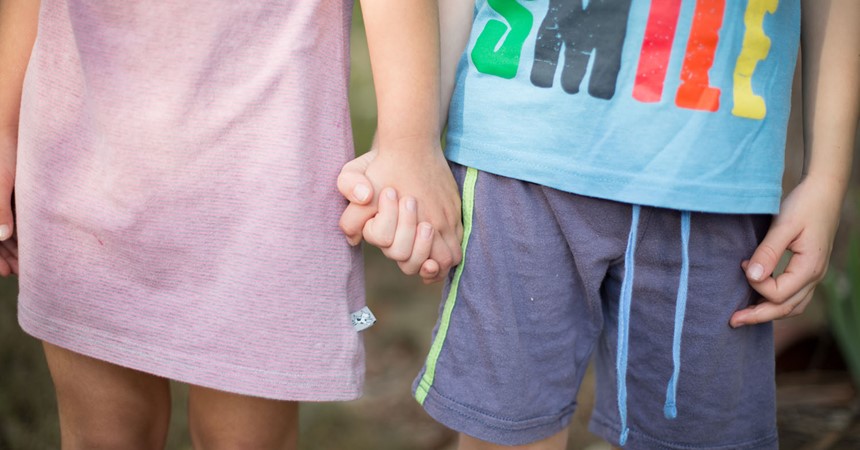Over the past decade, wellbeing has increasingly been positioned as ‘core business’ of schools, a development that is not altogether surprising, given school is the place where children spend much of their precious childhoods. Yet there is currently no recognised national policy framework for the wellbeing of Australian children to guide schools in this important and challenging work. Further, some suggest ‘wellbeing’ is at risk of becoming a kind of ‘hurrah’ word that everyone agrees with, even though there is little or no consensus about what it looks, sounds or feels like, especially in the context of schools.
Wellbeing is often described in terms of ‘mental health’, ‘resilience’, ‘psychosocial competence’ and the like. Many communities, including Aboriginal and Torres Strait Islander Australians, prefer the term wellbeing to mental health, because it reflects a more positive and holistic approach and goes some way to countering the deficit framing of children’s lives that dominated this field for many years. Generally, wellbeing is understood to encompass states of happiness, confidence and not feeling depressed; a feeling of autonomy and control over one’s life; the capacity to make a contribution within a given community and the ability to have good relationships with others.
Reflecting on my own work over many years as a teacher and academic, including as author of the Seasons for Growth loss and grief education program, I have learned a great deal about children and their wellbeing – and I’m still learning! At times, I have had to challenge some deeply held assumptions (my own and others’) about notions of ‘risk’ and ‘vulnerability’ as I observed the immense potential of children and young people to solve problems amid difficult circumstances and complex issues, transition through painful events, manage challenging feelings, identify what is in their best interests and make good choices. While I’ve witnessed, time and again, the potentially damaging effects on children and young people when key relationships in their lives aren’t functioning well and/or they are disconnected from positive social support, I’ve also been inspired and humbled by how adept some children are in the face of such realities. As a result, I have at times critically questioned research evidence and policy frameworks that overly generalise or universalise the experience of children and young people, often using only administrative data or proxy parent and teacher data, without hearing directly from the ‘experts’ themselves.
Some of my most recent work has involved leading large-scale research on wellbeing at school. Such research has been tremendously enhanced by the opportunity to hear the views of students through interviews, focus groups and online surveys, as well as the perspectives of adult stakeholders. When I talk with principals, teachers, pastoral care workers, counsellors and others about key findings from this research, I’m often asked ‘Where/how do we start to address these issues’? or ‘What should we change’? My response is consistent – the evidence points very strongly to the fact that relationships are the key.
Being cared for, respected and valued (and providing this for others) was found to be central to the experience of wellbeing at school. This is exemplified in data where students frame wellbeing in terms of ‘being’, ‘having’ and ‘doing’: for example, being happy, having someone to trust, doing kind things for oneself and others. While trust featured strongly, so too did the need for connectedness, belonging and being known.
For many students, being known happens at a quite tacit level − being ‘noticed’, ‘visible’, ‘somebody knowing you are there’, ‘people not forgetting about you’. This was often most powerfully conveyed through simple gestures such as being greeted by name, a teacher noticing if something has changed for the student, a quiet nod, a knowing smile, a timely enquiry about an ill family member or a weekend sporting outcome. Students reported that they valued having teachers who listened to them, supported them to make good decisions and enabled them to contribute to the life of the school and the broader community. Students provided many examples of how such support helped them to grow in confidence, set goals, make good decisions, be positive and care for themselves.
Similarly, teachers spoke about the importance of good communication, ‘attentive noticing’, trust and being proactive in supporting and facilitating good relationships in schools. They stressed the importance of students feeling understood and cared about, their individual qualities, talents and differences acknowledged and valued, and of treating all children well, accepting and respecting them. One teacher put it this way, “I think there’s a relationship that the teacher builds with a child and your hope as a teacher, your greatest wish, is that you connect with every child.” Another suggested, “I don’t think we can have any clue about wellbeing if we don’t…know a student well enough so that when they walk into your classroom and [you] realise ‘They’re a bit down today’, ‘They’re a bit flat’ or ‘They’re really excited. What’s happened?’ If you don’t know them well enough then you don’t even register that.”
While I’m quick to point out that the critical importance of relationships for children and young people’s wellbeing isn’t exactly rocket science, we do need to acknowledge there is often a gap between what we know and what we do when it comes to improving relationships. Children and young people, I’ve learned, are experts on their lives – including on what helps and hinders their wellbeing – and we’d do well as adults to continue to find creative ways to listen to their views and reflect these in our policies, programs and planning. There is nothing quite so profound as to be present to children as they make sense of their experience. For each of us, in the various contexts in which we work, this is a gift, a challenge and a tender responsibility.
Anne Graham is Professor of Childhood and Youth Studies and Director of the Centre for Children and Young People at Southern Cross University.




























































































